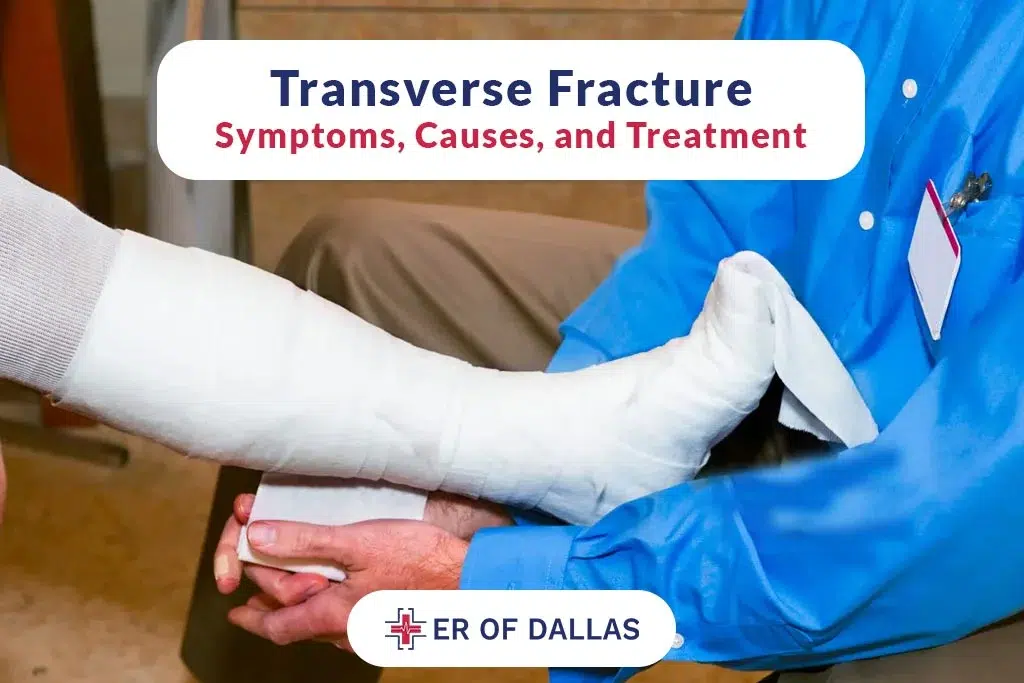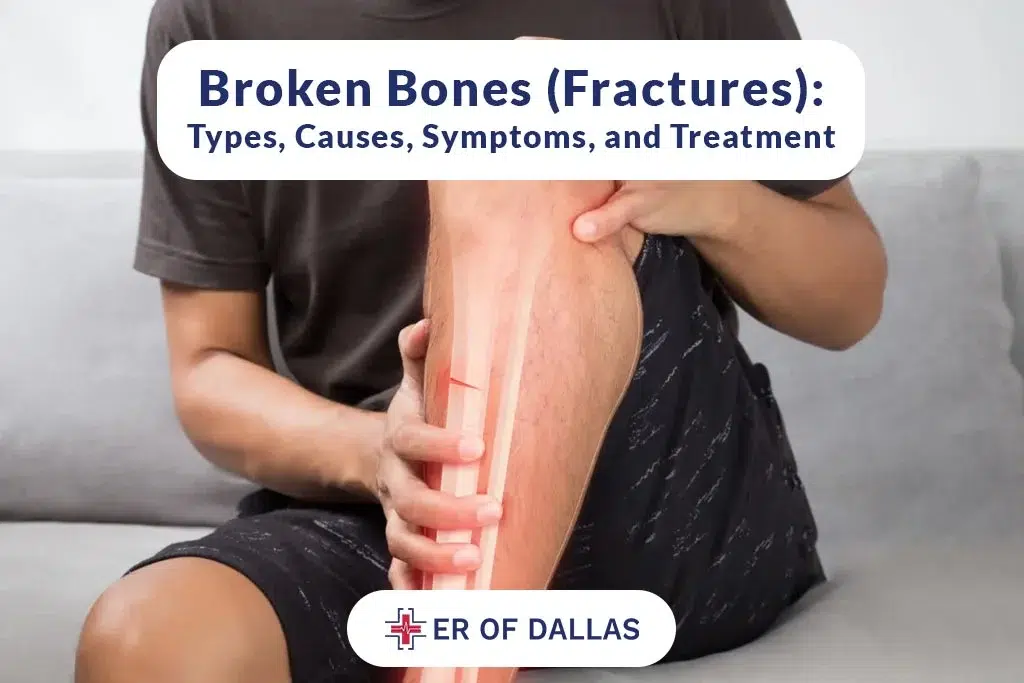But the immune system is only perfect sometimes. For example, there are situations where a person’s health condition or need for specific medications interferes with the system’s ability to fight.
The immune system misinterprets good tissue as diseased in autoimmune disorders and allergies, causing an unwarranted onslaught that can result in uncomfortable and occasionally severe symptoms.
This article will discuss the immune system’s primary functions and how it protects the body from infections and other external invaders. It will also examine immune system complications that may emerge.
What Is The Immune System?
This web of organs, tissues, and cells fights against pathogens such as bacteria, viruses, fungi, and parasites once they have managed to evade their defenses. It releases certain cells when it detects anything in your body that can be harmful to you. These locate the issue, target the intruder, and assist in eliminating it.
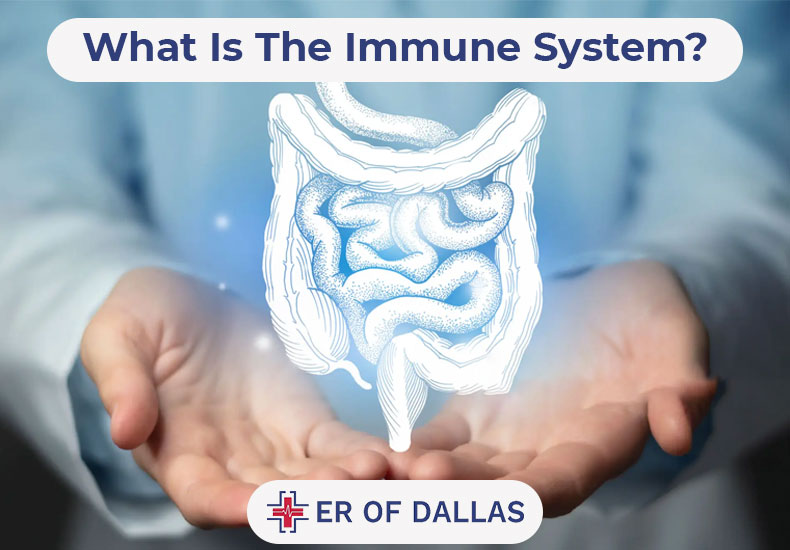
What Does The Immune System Do
Your immune system works hard to keep you healthy. It does this by:
- Keeping invaders (like germs) out of your body.
- Destroying invaders.
- Limiting how much harm the invaders can do if they’re inside your body.
- Healing damage to your body.
- Adapting to new challenges and threats.
Invaders your immune system protects you against include:
- Bacteria.
- Viruses.
- Fungi that can cause infections.
- Parasites.
- Cancer cells.
How Does The Immune System Work?
For the immune system to function properly, it must be able to differentiate between healthy and sick cells and tissue. It accomplishes this by identifying signals known as danger-associated molecular patterns, or DAMPS.
There are numerous causes of cell injury, such as:
- Infectious agents, such as bacteria or viruses
- Toxins, such as a bite or sting
- Noninfectious physical damage, for instance, a burn
- A genetic problem within cells, as happens with cancer
Anything that has the potential to activate an immunological response is an antigen.
A bacterium, fungus, virus, toxin, or foreign substance is frequently an antigen. However, a malfunctioning or dead cell may also be the cause. Pathogen-associated molecular patterns, or PAMPs, are identified by the immune system in the antigen. Thus, different components of the system identify the antigen as an intruder and initiate an offensive.
Overactive Immune System
Conversely, if you have an overreaction to imagined or actual intruders, your immune system may overreact. In the absence of an invader, it might launch an attack. Or, once an invader is eliminated, it cannot stop assaulting. Problems like autoimmune illnesses and allergic reactions can be brought on by an overactive immune system.
Weak Immune System
Your immune system can be weakened by a variety of disorders, increasing your susceptibility to infection. Birth defects are less common than conditions that arise later in life, such as cancer and Type 2 diabetes.
Signs of a Strong Immune System
As enthusiastic supporters of World Health Day, we want to spread the word about health and wellbeing and inspire individuals like you to reach your full potential. A robust immune system is a sign of excellent health. The foundation of keeping ourselves safe from infections and diseases and preventing illness is a robust immune system. So, how strong is your immunity? Here, I go over four surefire indicators of a robust immune system and provide my best advice if you think you might need a little extra help.

You Have Good Gut Health!
It’s time to return your focus to your stomach, as is unavoidable in many of my blogs. It’s believed that your stomach contains up to 80% of your immune system. It follows that a functioning digestive system is a sign of a functioning immune system. Most importantly, studies have demonstrated that a greater variety of beneficial gut flora is a reliable indicator of improved immune function.
Colds And Flu Don’t Bother You
Healthy sleeping patterns, hydration, and diversified food are all indicators of a robust immune system. While many people believe that being sick isn’t always an indication of a robust immune system, how quickly you recover from illness may be a more accurate measure of immune function.
Even while your immune system is built to help keep bugs out, they may occasionally manage to get in. This could indicate that you give in to the symptoms of an unwanted sickness or cold. It’s normal, though, so don’t worry. After a few days, the majority of us should anticipate feeling better. Your immune system may be struggling if your symptoms last for more than a week or two.
Water Is Something You Enjoy Drinking
Might a robust immune system be associated with regular water consumption? Now, while this method isn’t infallible, the following are some explanations for why consuming 1.5–2 liters of water per day can assist in positioning you to ward off insects soon:
- Water is hydration from within, which also maintains your skin healthy. The largest organ on your body, the skin serves as one of the initial defenses against insects. Maintaining appropriate hydration is essential for maintaining healthy skin; any fractures or structural weaknesses could provide an easy entry site for opportunistic insects!
- Maintaining adequate hydration promotes healthy circulation. Healthy lymphatic drainage and circulation make it possible for our immune cells to travel quickly to their destinations. Furthermore, it ensures that infections are correctly managed.
- Healthy healing processes can be supported by adequate circulation. Wounds that take a long time to heal may indicate a weakened immune system, but poor circulation is another possible cause. Consuming large amounts of alcohol will benefit both.
It’s noteworthy to note that one of the numerous indications that your immune system is functioning properly is the way your skin responds to specific stimuli, like insect stings. Eczema, for example, may be a sign that your immune system is overactive, in which case you may want assistance to rebalance.
Laughter Is In Your Nature
Did you know that your immune system’s performance may also be impacted by your mood? For starters, loneliness impairs our ability to cope with stress, which can exacerbate inflammatory reactions and hurt the immune system.
On the other hand, laughing could be beneficial. Research has demonstrated the beneficial, immune-boosting effects of laughter, which can be partially attributed to the enjoyable, stress-relieving nature of a good chuckle. Enjoy!
Tattoos and Immune System
The second layer of skin, the dermis, is where the ink is injected with a needle when you receive a tattoo. Because this ink is perceived by your body as a foreign invader, your immune system is triggered to locate and eliminate the foreign substance. During this process, the ink is enveloped by unique white blood cells known as macrophages, which attempt to break it down using enzymes to a size small enough to be eliminated by the body’s lymphatic system. (A comparable macrophage reaction occurs when the tattoo needle introduces microorganisms along with pigment.
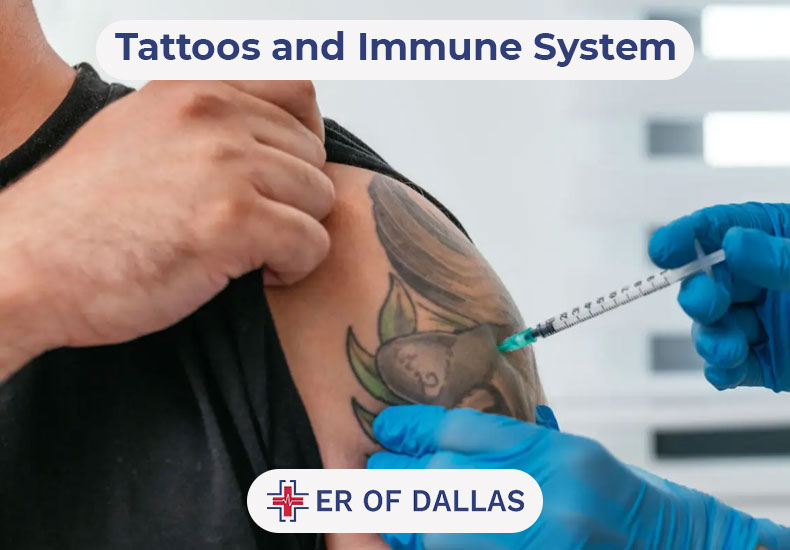
You will become infected if the germs grow more quickly than your white blood cells can eliminate them. Nevertheless, these enzymes do not degrade huge tattoo ink droplets. The ink molecules become lodged there after being ingested by a macrophage. When you look at the most recent tattoo on yourself or a friend, you notice this imprisoned ink.
Additional studies have suggested a potential connection between immune system fortification and tattoos. As previously mentioned, getting a tattoo causes the body’s immune system to quickly strengthen in an attempt to fend off infection. However, studies have revealed that this response occurs throughout the body, not only at the location of the supposedly “injured” tattoo. Furthermore, cortisol levels—a hormone known to trigger the “fight or flight” reaction during stressful situations—seem to drop after future tattoo sessions, which is consistent with the body’s endocrine system. Over time, excessively high cortisol levels can lead to unmanageable anxiety, diabetes, high blood pressure, and improper food processing.
How to Boost Immune System
Numerous goods and supplements make the promise to strengthen immunity. However, maintaining a strong immune system involves more than just ingesting a supplement containing a combination of vitamins and minerals in a tablet or powder form.
Your immune system functions within an extremely fine equilibrium. It must be intelligent and powerful enough to combat a wide range of ailments and infections, without being overly powerful to the point of needless overreaction. It is extremely precisely controlled to do this, responding to many inputs and internal body processes.
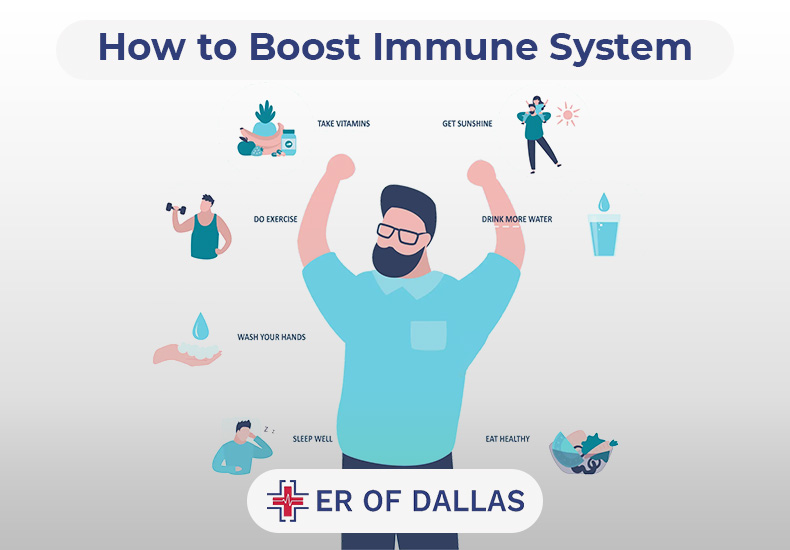
Eat Healthy Food
A healthy diet should prioritize getting plenty of fruits and vegetables, whole grains, lean protein, and low- or fat-free milk and dairy products. Limiting added sugars, cholesterol, saturated fats, and salt is another aspect of healthy eating.
Eating healthily supplies several nutrients that promote the best possible immune response. But be mindful that certain vitamins and minerals can be toxic in excess. Consult your physician if you believe you require dietary supplements.
Get Enough Sleep
A fatigued body cannot effectively fight illnesses. Getting a decent night’s sleep is essential for maintaining a healthy immune system. Weak immunity might result from metabolic and hormone imbalances brought on by poor sleeping habits.
If you’re struggling to sleep, here are a few tips that may help:
- Make sure you go to bed at the same time every night
- Be sure to turn off your phone two hours before bedtime if you want to disconnect from technology
- You should avoid taking naps
- In the afternoon, switch to decaffeinated drinks
- To improve your sleep quality, take sleep supplements before bed
Small dietary and lifestyle changes can have a big impact on your body’s immune response, especially in the winter. Even while illness is inevitable, having a strong immune system can make symptoms less severe and go away more quickly.
Be Physically Active / Exercise regularly
In your quest to strengthen your immune system, regular exercise has enormous benefits. Yoga is a great option for a low-intensity workout that can help you relieve tension in addition to getting your body moving. On the other hand, scheduling even 30 minutes of daily walking can boost your immune system.
Maintain a Healthy Weight
Being overweight can impact your body’s functioning. Immune system impairment is associated with obesity, which is defined as having a body mass index (BMI) of 30 or above in adults. Additionally, obesity may reduce the effectiveness of vaccinations against some illnesses, such as tetanus, influenza, and hepatitis B.
Getting adequate sleep, eating well, managing stress, and exercising frequently are all safe strategies to support maintaining a healthy weight.
Stay Hydrated
Your body uses water for a variety of functions, one of which is immune system support. Water is important because it allows our blood and lymph, which contain immune cells, to circulate throughout our bodies.
You regularly lose water through your breath, urine, and bowel movements—even when you’re not exercising or perspiring. Make sure you’re replacing the water you lose with usable water to assist your immune system.
Reduce Stress
The immune system can be severely strained by stress. Stress reduces lymphocytes, a type of white blood cell that makes you more susceptible to viruses.
Improving your immune system can be greatly aided by practicing relaxation practices like yoga and meditation to reduce stress. Including stress-relieving vitamins in your diet, such as magnesium, is another method to get rid of tension.
Where Does The Immune System Reside In Your Body?
Organs and cells of the immune system play a crucial role in keeping you healthy. Immune system components include:
- Leukemic cells. To keep you healthy, these immune system cells target and eradicate dangerous pathogens. White blood cells come in a variety of forms, and each kind serves a particular purpose in your body’s defense mechanism. Additionally, the methods by which each kind detects issues interacts with other cells, and completes tasks vary.
- Antibodies. These proteins bind to invaders and start the process of destroying them, protecting you from harm.
- Cytokines. These proteins serve as chemical messengers that tell your immune cells where to go and what to do. Different types of cytokines do different specific tasks, like regulating inflammation. Inflammation happens when your immune cells are warding off invaders or healing damage to your tissues.
- Complement system. This is a group of proteins that teams up with other cells in your body to defend against invaders and promote healing from an injury or infection.
- Lymph nodes. These small, bean-shaped organs are like colanders you use to drain pasta. They filter waste products from the fluid that drains from your tissues and cells (lymph) while keeping the good components, like nutrients. You have hundreds of lymph nodes throughout your body, and they’re a vital part of your lymphatic system.
- Spleen. This organ stores white blood cells that defend your body from invaders. It also filters your blood, recycling old and damaged cells to make new ones.
- Tonsils and adenoids. Located in your throat and nasal passage, tonsils, and adenoids can trap invaders (like bacteria or viruses) as soon as they enter your body.
- Thymus. This small organ helps T-cells (a specific type of white blood cell) mature before they travel elsewhere in your body to protect you.
- Bone marrow. This soft, fatty tissue inside your bones is like a factory for your blood cells. It makes the blood cells your body needs to survive, including white blood cells that support your immune system.
- Skin. Your skin is a protective barrier that helps stop germs from entering your body. It produces oils and releases other protective immune system cells.
- Mucosa. This three-layered membrane lines cavities and organs throughout your body. It secretes mucus that captures invaders, like germs, for your body to then clear out.
Illnesses And Disorders That Affect The Immune System
Conditions that can interfere with the normal workings of your immune system include:
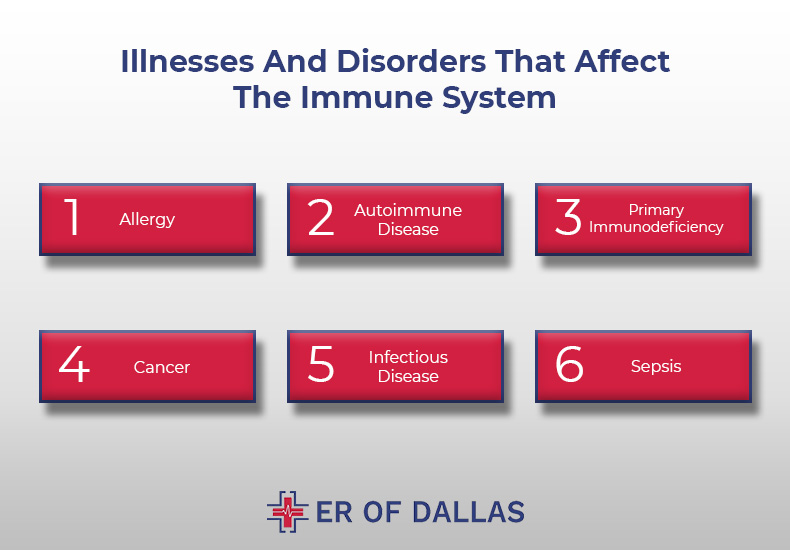
- Allergy. An allergy is your body’s reaction to a substance that’s normally harmless. Your immune system overreacts to the presence of that substance, leading to a range of symptoms from mild to severe.
- Autoimmune Disease. These disorders develop when your immune system unintentionally targets its healthy cells. Typical autoimmune disorders include rheumatoid arthritis and lupus.
- Primary Immunodeficiency. Your immune system cannot function as it should because of certain hereditary disorders. They increase your susceptibility to infections and specific illnesses.
- Cancer. Leukemia and lymphoma are two cancers that might impair your immune system. This is due to the possibility of cancer cells spreading to or growing in your bone marrow from another location. Your bone marrow’s cancer cells prevent your blood cells from producing normally, which is essential for battling infection.
- Infectious Disease. When bacteria enter your body, they multiply and cause harm, leading to infectious diseases. Examples of infectious disorders that impair immunity and can cause significant sickness include HIV and mononucleosis (mono).
- Sepsis. Severe immunological reaction to infection is known as sepsis. Your immune system begins to harm organs and healthy tissues. This results in inflammation throughout your body that could be fatal.
FAQs
Do Antibiotics Weaken Your Immune System
Antibiotics cause the typical bacterial community to disappear while promoting the overgrowth of some potentially dangerous germs. They reasoned that antibiotics may be impairing the immune system, making the body less equipped to fight off a subsequent viral infection, as a functioning immune system depends on a healthy gut flora.
How To Boost Immune System While Taking Methotrexate
During your methotrexate therapy, make sure you stay well hydrated, especially if you engage in strenuous activity or exercise. If you suspect that you may be dehydrated, give your doctor a call. If you sweat excessively, throw up, have diarrhea, or have a fever, you could get dehydrated.
How Long Is Immune System Compromised After Steroids
Your immune system may be weakened by corticosteroids, leaving you more susceptible to illness. This implies that until at least three months after your treatment of corticosteroids has ended, you should refrain from receiving any live vaccine.
How Do The Circulatory System And Immune System Work Together To Respond To An Injury?
White blood cells, which are the main immune system component, move through the bloodstream, indicating a close relationship between the immune system and the circulatory system. The immune system’s role is to identify foreign substances that have entered the body and launch an attack to eradicate them.
Why Is My Immune System So Weak?
Smoking, drinking, and eating a bad diet can also damage your immune system. AIDS. HIV is an acquired viral infection that weakens the immune system and kills vital white blood cells, leading to AIDS. Individuals who are HIV/AIDS positive get infections that are often treatable.
Conclusion
Your immune system is always alert and prepared to alert authorities when it detects a threat, much like a home security system that deters burglars and sounds the alarm when necessary. Your immune system’s cells and organs cooperate to find, recognize, and eliminate pathogens and other intruders to protect and maintain your health. However, your immune system’s role is not limited to defense. Similar to how you would need someone to fix a damaged window or door, its team also fixes the harm that invaders inflict.
However, occasionally even the best security system can experience issues. Conditions such as autoimmune illnesses might interfere with your body’s capacity to fight off invaders or heal injuries. For this reason, it’s critical to schedule routine exams with a healthcare professional at the ER of Dallas. They can identify issues early on and treat you if necessary to maintain optimal immune function.





